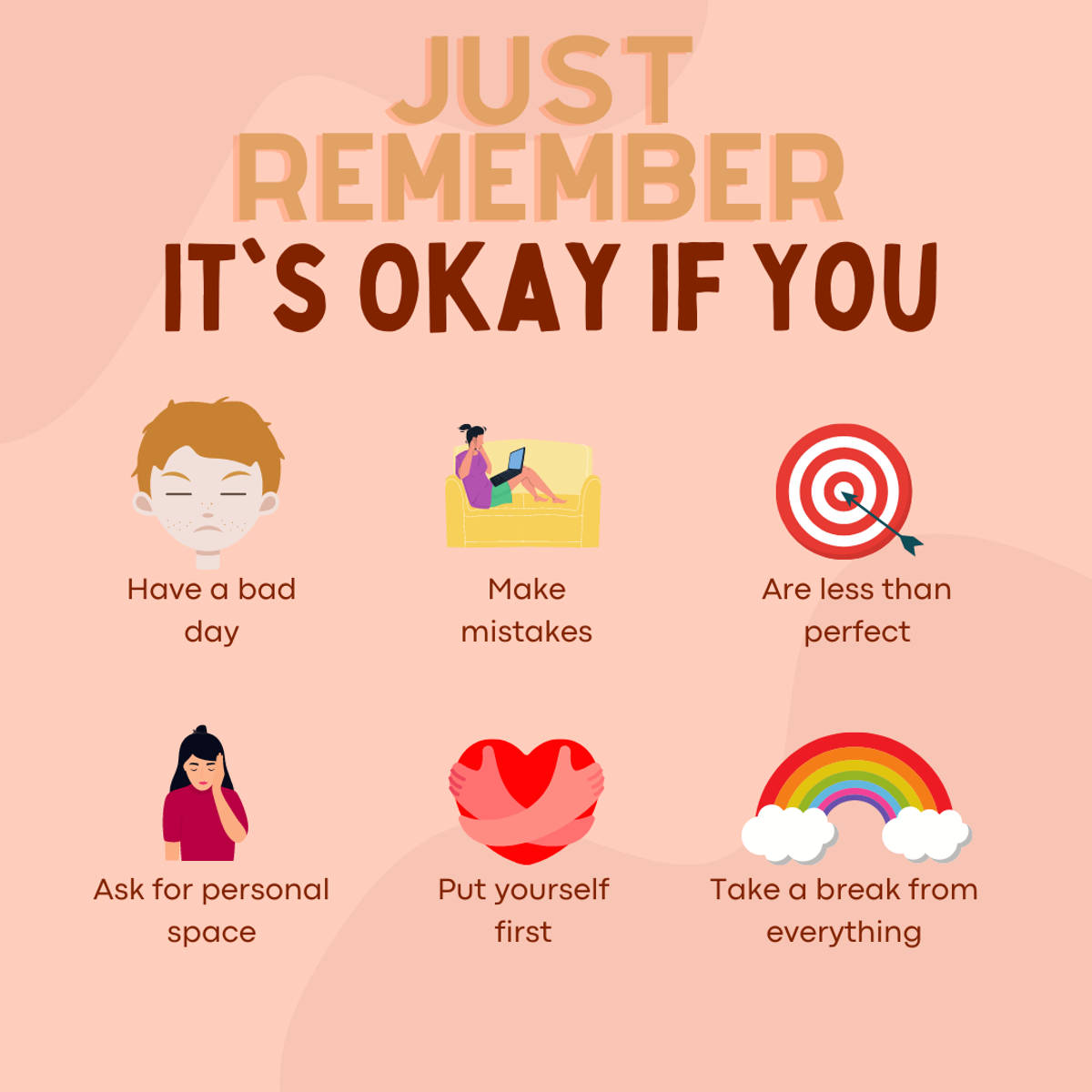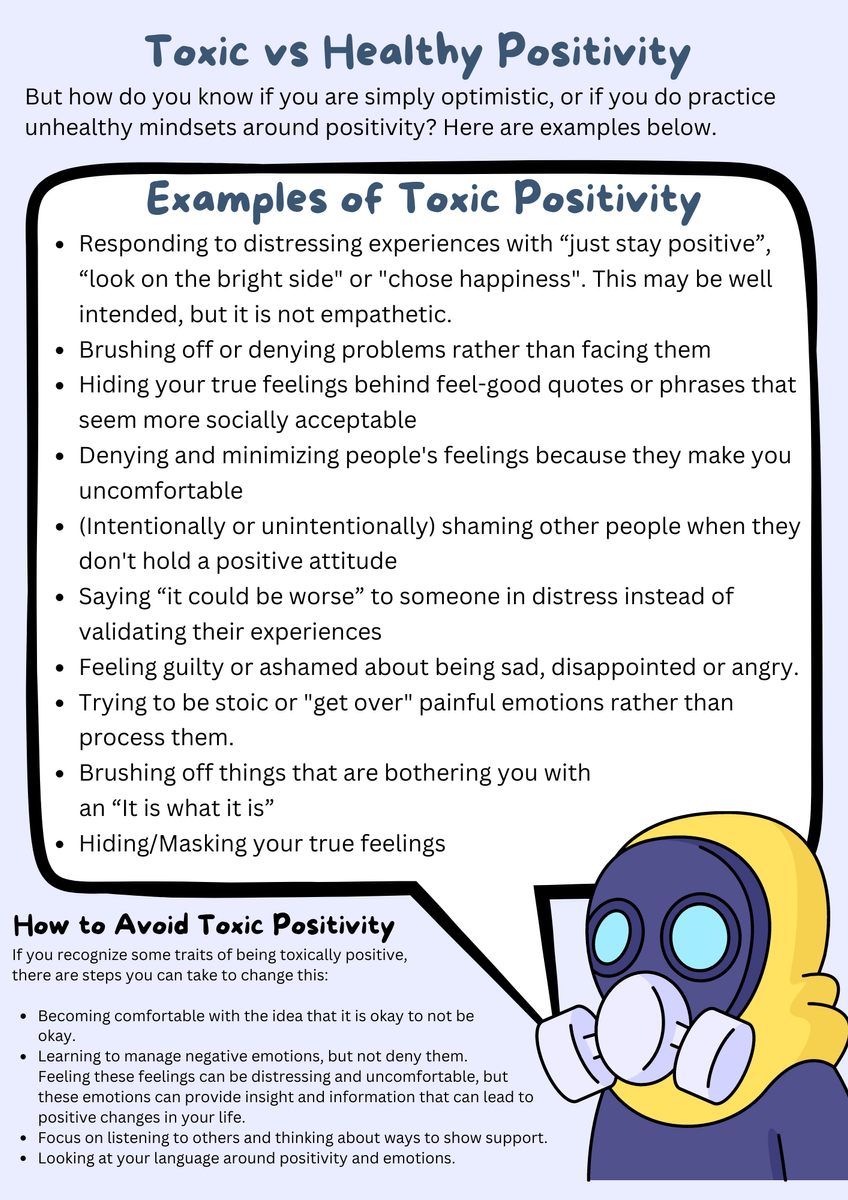Student Wellbeing
Wellbeing

Student Wellbeing
Wellbeing


You may have heard the term "Toxic positivity" and wondered what it is. Isn't positivity good? How can it be toxic?
Toxic positivity is the belief that regardless of how difficult or upsetting a situation is, people should maintain a positive mindset. Whilst being optimistic and trying to engage in positive thinking is beneficial to your wellbeing at times, this differs to Toxic Positivity.
Toxic Positivity rejects any "difficult" feelings and suppresses distress, in favour of appearing "positive", even if this is not genuine. It denies any emotions that are not strictly happy or "positive". But in doing so, it denies the truth that life is simply not always positive.
We can lead happy lives and feel joyful and fulfilled, but pain and suffering is inevitable at times. This is simply the balance we strike as humans. Life is complicated, and so are our emotions. If we don't allow ourselves to feel our feelings, this can have long term impact to our psychological health. As a therapist once said to me: "You gotta feel it to heal it".


Those emotions, while often unpleasant, need to be felt and dealt with openly and honestly to achieve acceptance and greater psychological health. Likewise, not acknowledging these feelings denies people the authentic support they deserve to help cope and grow from the challenges they are facing. By not acknowledging these feelings, we can invalidate our, and other people's, experiences and inadvertently contribute to stigma and shame around feeling specific emotions. It can infer that if a person isn't happy, that they are doing something "wrong".
But how do you know if you are simply optimistic, or if you do practice unhealthy mindsets around positivity? Check out this flyer for more information.


The Wellbeing Team have compiled a range of resources and support services for students and families to access via Compass under Community (the two people) – School Documentation – For Students/For Parents – Wellbeing Resources.
headspace: visit headspace.org.au to find your nearest centre or call headspace on
1800 650 890.
Kids Helpline:
1800 55 1800 or kidshelpline.com.au
ReachOut: reachout.com.au
SANE Australia: 1800 187 263 or sane.org
National 24/7 crisis services
Lifeline:13 11 14 or lifeline.org.au
Suicide Call Back Service: 1300 659 467 or suicidecallbackservice.org.au
beyondblue:
1300 224 636 or beyondblue.org.au
Student Wellbeing Team
Email: wellbeing@wantirnacollege.vic.edu.au
Guiseppe Relia – Wellbeing Coordinator
Talea-Jane Simpson – School Counsellor
Lea Marrison - Mental Health Practitioner
Tajinder Wulff - Mental Health Practitioner